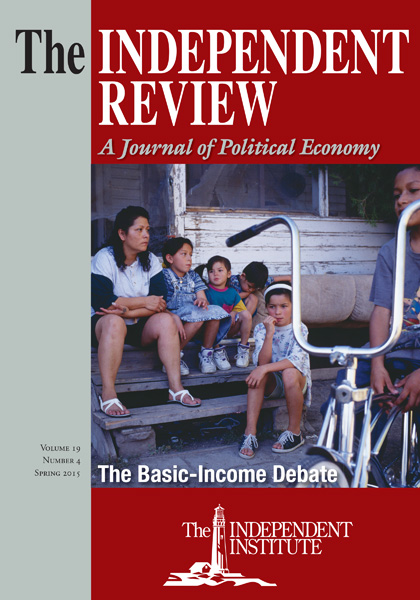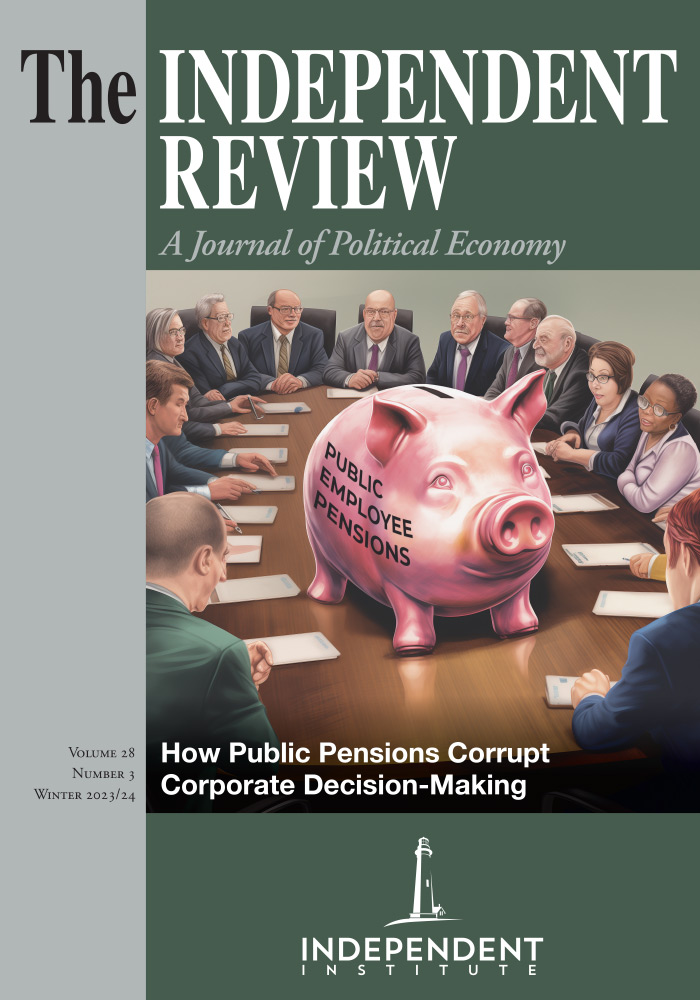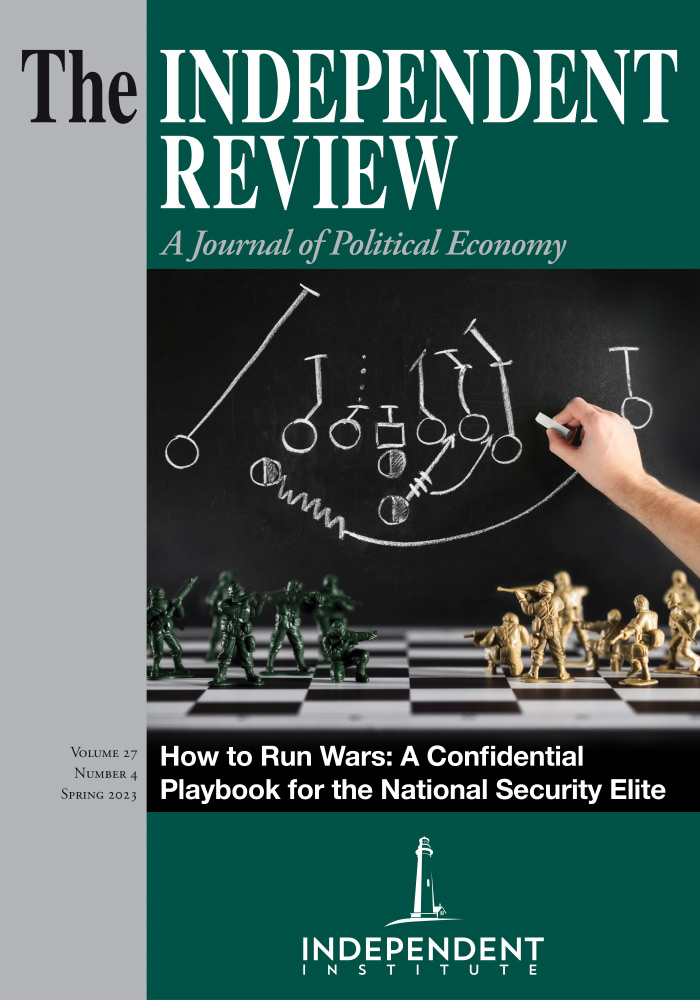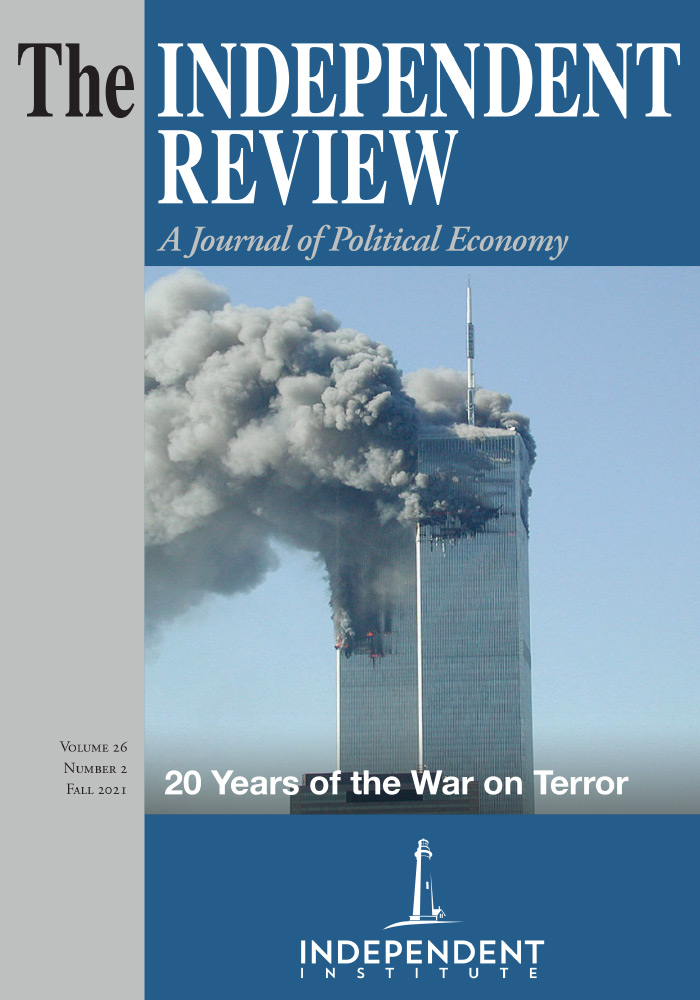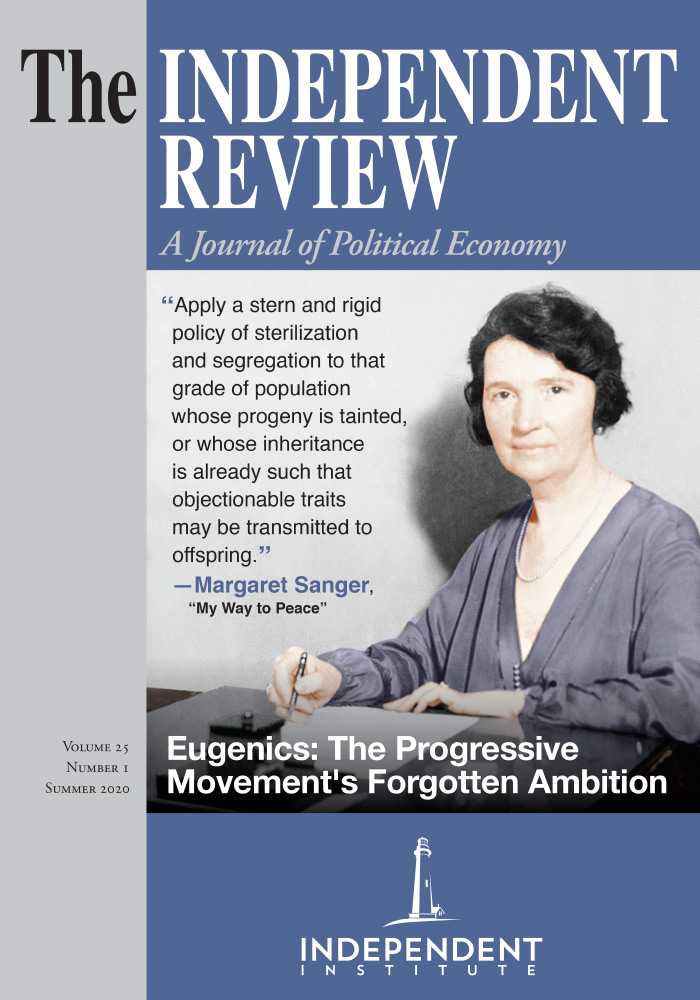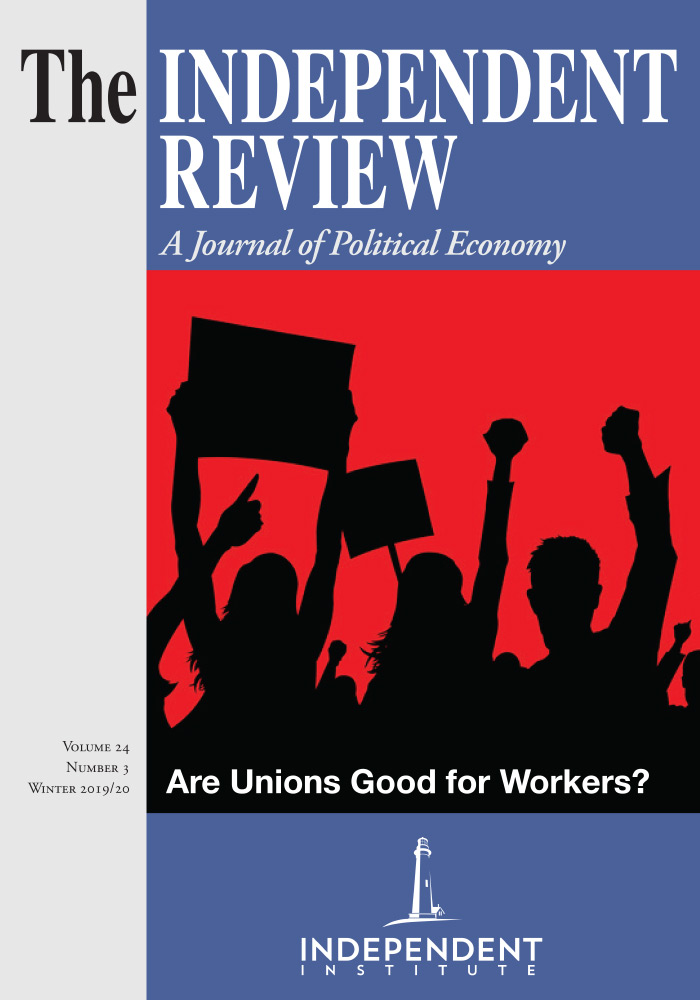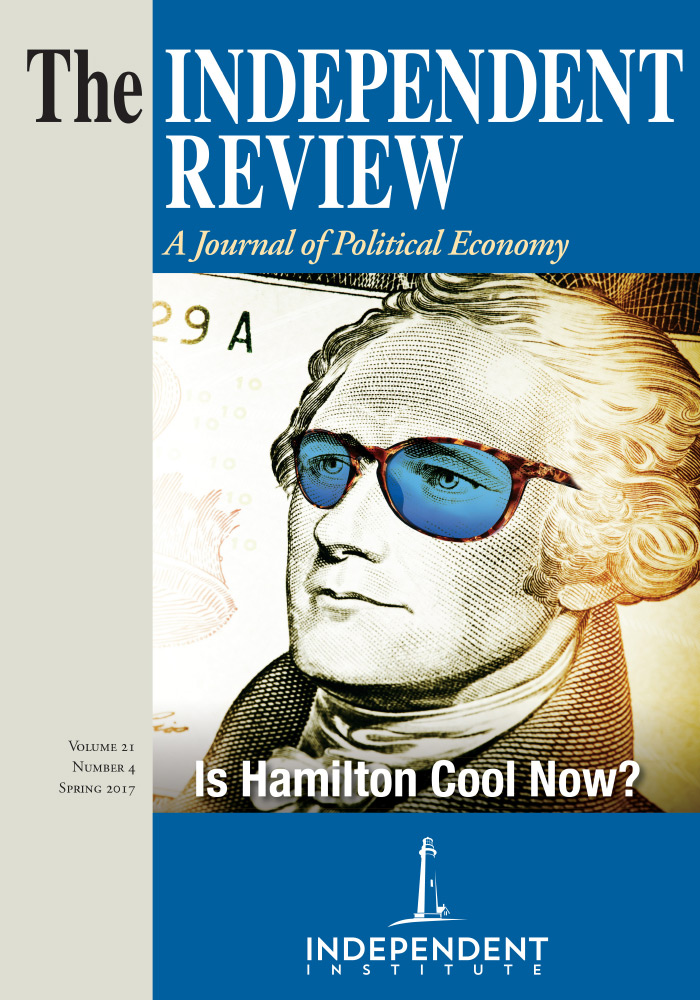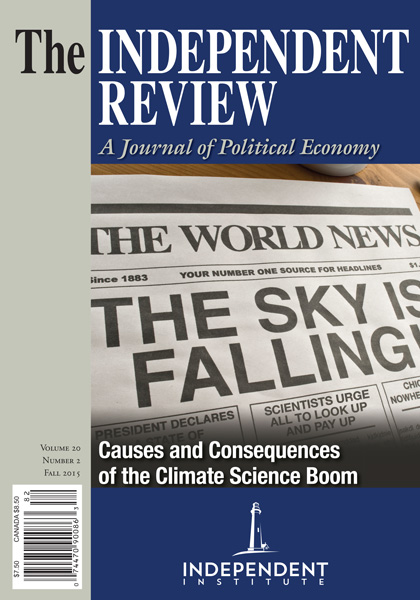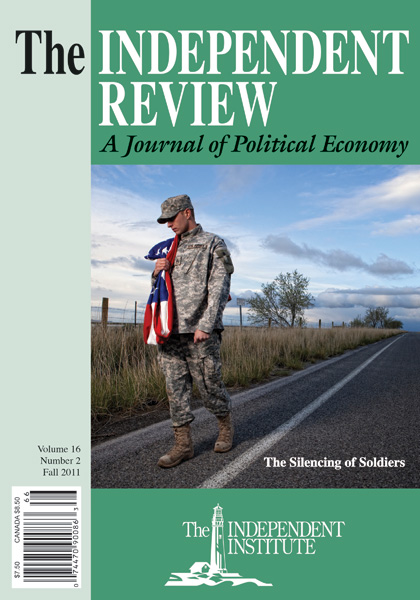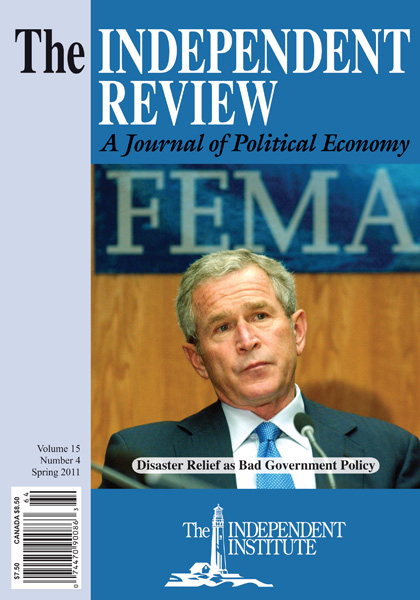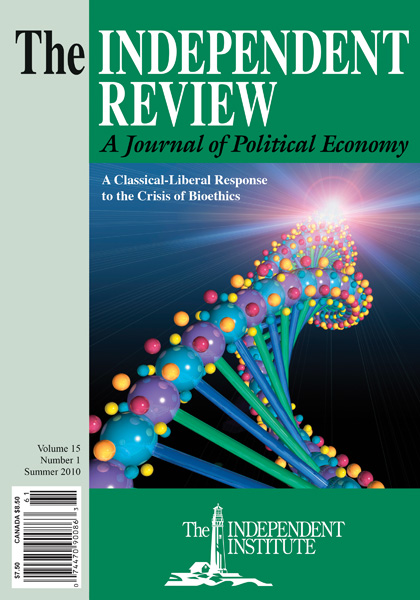Basic-income guarantees or negative income taxes have been debated for decades, but a new group of advocates—some calling themselves libertarian—has rekindled the discussion. The Independent Review’s Spring 2015 symposium offers conflicting perspectives on this controversial proposal and on government’s role in social welfare spending in general.
Article
A number of scholars—surprisingly for some of them, given their classical liberal leanings—have recently “come out” in favor of a basic-income guarantee (BIG). And of course various forms of basic-income or negative income tax have been behind the scenes in policy debates for decades (e.g., Friedman [1962] 2002; see Murray 2006 for an overview).
The origins of what we now think of as a BIG are obscure. One clear antecedent is in the French Republican tradition, especially Thomas Paine drawing on Jean-Jacques Rousseau’s idea of property. In The Second Discourse, Rousseau famously claimed: “The first man, who, after enclosing a piece of ground, took it into his head to say, ‘This is mine,’ and found people simple enough to believe him, was the true founder of civil society. How many crimes, how many wars, how many murders, how many misfortunes and horrors, would that man have saved the human species, who pulling up the stakes or filling up the ditches should have cried to his fellows: Be sure not to listen to this imposter; you are lost, if you forget that the fruits of the earth belong equally to us all, and the earth itself to nobody!” (1754).
One could stop well short of “the earth itself [belongs] to nobody!” in considering the ownership of the revenues deriving from harvesting, mining, or collecting natural resources. If the “earth itself” is unowned, then common-pool problems would cause the collapse of the resource itself and fail to give accurate signals through prices about the resource’s opportunity cost.
A “solution” that a number of people settled on was some form of compensation for resource use. For some, the focus was narrowly on land as the key resource, requiring a tax on land rent (George [1879] 1935). More interesting, for purposes of situating the BIG historically, is Thomas Paine’s 1795 pamphlet Agrarian Justice, in which he advocated not just a tax on land but also the use of that revenue to fund a universal “ground rent” payment.
[T]he earth, in its natural, cultivated state was, and ever would have continued to be, the common property of the human race. . . . But the earth in its natural state, as before said, is capable of supporting but a small number of inhabitants compared with what it is capable of doing in a cultivated state. And as it is impossible to separate the improvement made by cultivation from the earth itself, upon which that improvement is made, the idea of landed property arose from that parable connection; but it is nevertheless true, that it is the value of the improvement, only, and not the earth itself, that is individual property.
Every proprietor, therefore, of cultivated lands, owes to the community a ground-rent (for I know of no better term to express the idea) for the land which he holds; and it is from this ground-rent that the fund proposed in this plan is to issue. . . . [I propose] to create a national fund, out of which there shall be paid to every person, when arrived at the age of twenty-one years, the sum of fifteen pounds sterling, as a compensation in part, for the loss of his or her natural inheritance, by the introduction of the system of landed property:
And also, the sum of ten pounds per annum, during life, to every person now living, of the age of fifty years, and to all others as they shall arrive at that age. (emphasis added)
This view, that property in land and natural resources is neither theft nor private, has developed into a body of thought some people call “geolibertarianism.” Some would accept the line argued by Paine, George, and others that land (though, significantly, not improvements to land) is common property and produces a rent or revenue to be shared universally. Others would include among the resources commonly owned forests, fossil fuels, minerals, and nearly all of the other resources extracted, mined, or taken from the earth on a one-time rather than recurring basis.
The argument that the basis for the “ground rent” as a revenue source for a universal BIG (which is very close to what Paine was proposing) can certainly be criticized. Murray Rothbard ([1957] 1997) offers an interesting three-pronged counterargument against a “single tax” on land (see also Holcombe 2005 for a broader review of common property in anarchist thought). First, the “value” of land is a price. But tax assessors would certainly use political, rather than economic, values in making their assessments. Second, even in markets where land is priced separately, as in urban areas where rent gradients are based on location, the value of location is itself an improvement resulting from human action. So the price of the land contains humanbuilt improvements. Finally, “idle” land, far from being a sign of speculative manipulation, is caused by (relative) labor shortages. Taxing unimproved land would harm both growth and the environment.
There are, it seems, powerful arguments on both sides. Interestingly, there are some examples of systems very like a BIG already in place and in operation. The State of Alaska established in 1980 the Alaska Permanent Fund, with a constitutional amendment that required that “[a]t least 25 percent of all mineral lease rentals, royalties, royalty sales proceeds, federal mineral revenue-sharing payments and bonuses received by the state be placed in a permanent fund, the principal of which may only be used for income-producing investments” (Alaska Permanent Fund n.d.). The income derived from the endowment created out of the depletion of natural resources in Alaska is divided up among all permanent citizens of Alaska, with some restrictions for access and residency. As Karl Widerquist and Michael Howard (2012) have noted, the Alaska experience might provide a model that shows how payments might work and how they might be financed.
In this symposium, we offer some differing perspectives on the problem of social welfare spending and the notion of a BIG as a possible response to this problem. To keep things manageable, our starting point is the Cato Unbound discussion of summer 2014 (Zwolinski 2014) in which the case for a BIG as the best of a number of less-than-perfect choices was presented.
First in the symposium is David R. Henderson’s article “A Philosophical Economist’s Case against a Government-Guaranteed Basic Income,” in which he responds to the standard arguments for a BIG and points out some difficulties in implementation that make the more ambitious BIG proposals implausible. Henderson also argues that a BIG is unlikely to achieve its goals and that the grander versions are simply not capable of being implemented.
The second paper, “One and One-Half Cheers for a Basic-Income Guarantee: We Could Do Worse, and Already Have” by Michael Munger, offers a much more limited and therefore more feasible conception of a BIG. Its proposal, however, would require that many programs, including existing welfare transfers, the minimum wage, and rent subsidies, be eliminated as a means of financing the BIG. Nevertheless, this program represents a useful benchmark in the debate because it would at least be technically feasible.
But that squarely raises the question of whether a BIG is politically desirable. In “Property Rights, Coercion, and the Welfare State: The Libertarian Case for a Basic Income for All,” Matt Zwolinski takes on the difficult task of justifying a BIG not as “better than nothing” or “an improvement over the existing bad policy” but as a positive good. The affirmative case for a BIG, although arguable, has not often enough been a part of the debate, at least not among classical liberals.
The final paper, “Skeptical Thoughts on a Taxpayer-Funded Basic-Income Guarantee,” is by Robert Whaples. Batting cleanup is a difficult spot in any lineup, but Whaples steps up to the plate by addressing both Munger’s pragmatic arguments and Zwolinski’s fully elaborated justification. He concedes neither Munger’s claim that “we could do worse and probably will” nor Zwolinski’s argument that a comprehensive conception of rights requires a BIG as a matter of justice. Whaples would claim that the question Munger and Zwolinski ask—How best to fight the war on poverty?—is actually moot because in important ways that war has already been fought and won by market systems.
References
Alaska Permanent Fund. n.d. What Is the Alaska Permanent Fund? Available at http://www.apfc.org/home/Content/aboutFund/aboutPermFund.cfm.
Friedman, Milton. [1962] 2002. Capitalism and Freedom: Fortieth Anniversary Edition. Chicago: University of Chicago Press.
George, Henry. [1879] 1935. Progress and Poverty: An Inquiry into the Cause of Industrial Depressions and of Increase of Want with Increase of Wealth. Fiftieth Anniversary Edition. New York: Robert Schalkenbach. Available at http://mises.org/library/progress-and-poverty.
Holcombe, Randall G. 2005. Common Property in Anarcho-capitalism. Journal of Libertarian Studies 19, no. 2: 3–29.
Murray, Charles. 2006. In Our Hands: A Plan to Replace the Welfare State. Washington, D.C.: AEI Press.
Paine, Thomas. 1795. Agrarian Justice (pamphlet). Available at http://www.thomas-paine-friends.org/paine-thomas_agrarian-justice-1795-01.html.
Rothbard, Murray N. [1957] 1997. The Single Tax: Economic and Moral Implications. Reprinted in The Logic of Action, 294–305. Cheltenham, U.K.: Edward Elgar.
Rousseau, Jean-Jacques. 1754. A Discourse on a Subject Proposed by the Academy of Dijon: What Is the Origin of Inequality among Men, and Is It Authorized by Natural Law? Translated by G. D. H. Cole. Available at http://www.constitution.org/jjr/ineq.htm.
Widerquist, Karl, and Michael W. Howard. 2012. Exporting the Alaska Model: Adapting the Permanent Fund Dividend for Reform around the World. New York: Palgrave Macmillan.
Zwolinski, Matt. 2014. The Pragmatic Libertarian Case for a Basic-Income Guarantee. Cato Unbound, August 4. Available at http://www.cato-unbound.org/2014/08/04/matt-zwolinski/pragmatic-libertarian-case-basic-income-guarantee.
| Other Independent Review articles by Michael C. Munger | ||
| Fall 2024 | Tax Turmoil: A Dia Fenner Economic Thriller | |
| Fall 2024 | Retrieving Liberalism from Rationalist Constructivism, Volume I; Retrieving Liberalism from Rationalist Constructivism, Volume II | |
| Fall 2024 | The Dispersion of Power: A Critical Realist Theory of Democracy | |
| [View All (83)] | ||

